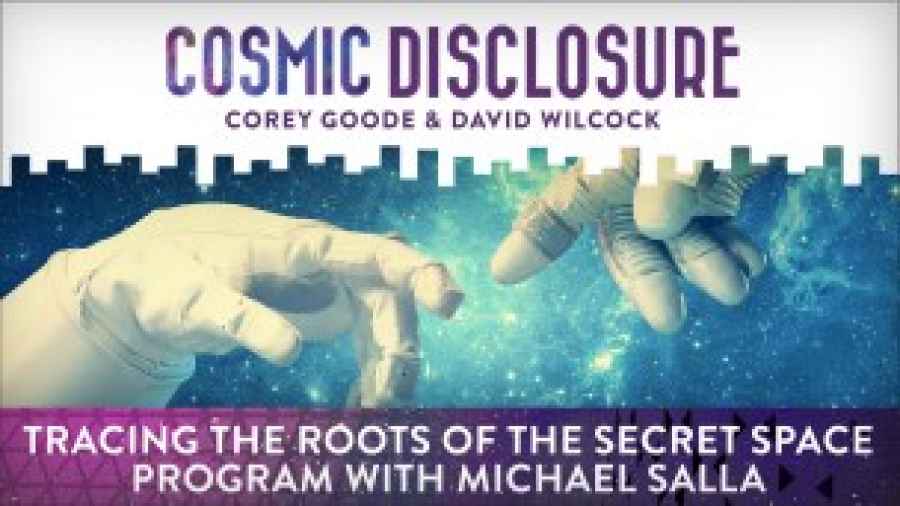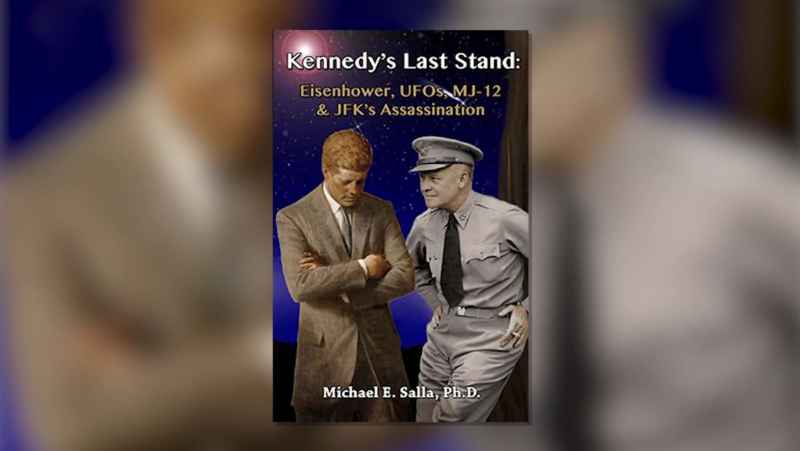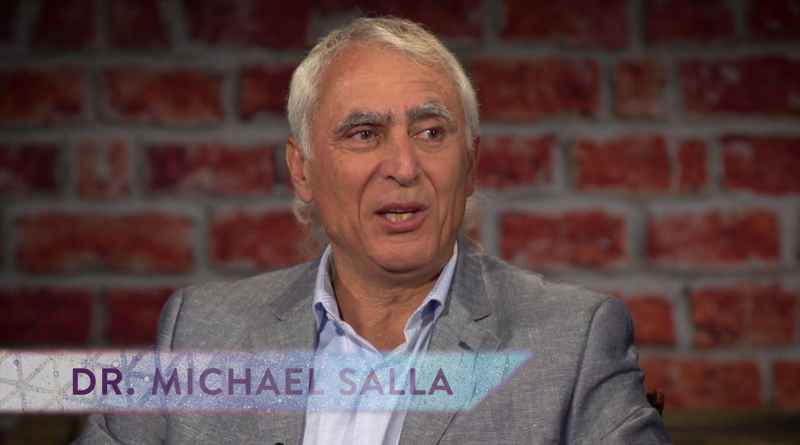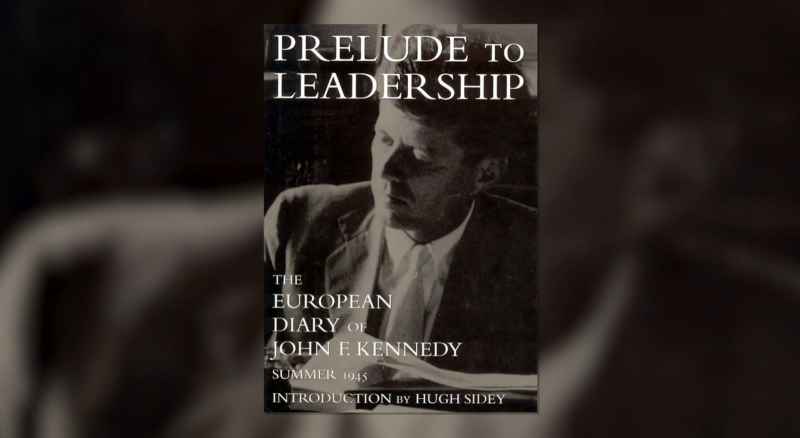The intricate history of the secret space program unfolds before us as Dr. Michael Salla discusses details from documents which corroborate the testimonies of people who were there. The list of key players includes: Eisenhower, JFK, James Forrestal and William Tompkins. Each took a role in ensuring the clandestine progression of humanity into the depths of deep space. This was a crucial time for engineers and politicians as humanity became caught in a proxy war between two rival E.T. factions. But things took a strange turn when science fiction media became the public means of disclosure through shows like The Outer Limits and Star Trek. This interview with David Wilcock was originally webcast on March 14, 2017.
Source: Tracing the Roots of the Secret Space Program with Michael Salla | Gaia
COSMIC DISCLOSURE: TRACING THE ROOTS OF THE SSP WITH MICHAEL SALLA
Season 7, Episode 11
 David Wilcock: All right, welcome to “Cosmic Disclosure”. I’m your host, David Wilcock. I’m here with Corey Goode and our special guest Dr. Michael Salla from Exopolitics Institute.
David Wilcock: All right, welcome to “Cosmic Disclosure”. I’m your host, David Wilcock. I’m here with Corey Goode and our special guest Dr. Michael Salla from Exopolitics Institute.
So Michael, welcome to the show.
Dr. Michael Salla: Thanks for having me on the show, David.
David: Thanks. And Corey, good to have you back, buddy.
Corey Goode: Thank you.
David: I was talking with you about another book that you wrote, “Kennedy’s Last Stand”, and so I’d like to open with that for this episode.
Michael: Well, the book really goes into what Kennedy knew about this whole topic. And the thing that . . .

David: What whole topic?
Michael: The topic of UFOs, flying saucers.
David: Oh.

Michael: Kennedy was very interested in that, and so the book looks at his history of trying to find out about it. But one of the things that I did in that book was, I was able to find out that, early in his career, Kennedy was actually a protege of James Forrestal, who at the time was the Secretary of the Navy.
Corey: The Navy, yeah.
Michael: And so Forrestal took Kennedy . . . This was before Kennedy became a congressman or even entered politics. And Forrestal, at the time, wanted to recruit Kennedy to his personal staff.
So Forrestal took Kennedy on a fact-finding trip to Germany in July and August of 1945. So this is after the war.
You had the Navy there, the Army there, basically pouring over everything that the Nazis were developing in terms of secret technologies and trying to find out what it was that they were going to bring back under Operation Paperclip – scientists and technologies.
So Forrestal . . .
David: So even though they fled to Antarctica, it wasn’t like they got everything out.
Michael: Exactly, yeah. The Germans still had a lot of really advanced stuff down there. Certainly, as far as the Air Force and the Navy were concerned, the stuff that the Germans were working on in occupied Europe was just way ahead of anything they had.
So the Navy was there trying to work out what it was that they should ship back to the U.S. to work on in their top secret laboratories.
David: Let me ask you this. Did the U.S. have captured German soldiers and scientists who were telling them what was there? Or were they just going into an abandoned building and then trying to poke around and look for things?
Michael: Oh, they had both. They had a lot of scientists, engineers, that were trying to cut a deal, trying to get a favorable place to live, or maybe even get repatriated to whatever country they were originally from, or even to the U.S., . . .
David: Right.
Michael: . . . people that had documents that wanted to cut a deal. People knew where the secret laboratories were.
So you had all of this happening, and so the Navy and the Army had their top intelligence teams in there trying to sift out exactly what was available.
David: All right. Sorry to interrupt, but I think this is really important, too.
In case people are younger, they don’t understand this, Kennedy is not just an ordinary family. We have a background on the Kennedys in which Joseph Kennedy, the father of all the Kennedy brothers, was well-known as a bootlegger, and had made a significant fortune.
Michael: Well, yeah. He was a very successful businessman. I mean, he did a number of things, and bootlegging during prohibition was one of the things.
David: Right.
Michael: But he’s probably best known for being the ambassador for the U.S. to England just before the Second World War.
David: Okay.
Michael: And he was also, along with James Forrestal, the . . . he became the first, I think, it’s the President of the Securities and Exchange Commission.
David: Oh, really?
Michael: So this was . . . So he was really at the apex of the financial system in the U.S. at the time.
David: Right, because the SEC is what’s regulating the whole stocks and commodities markets, and all that.
Corey: Yeah. And the tie-in to Forrestal is obvious. Forrestal pops up in ufology everywhere.
David: MJ-12, right?
Michael: Right, yeah. He was on the MJ-12 committee. And Forrestal, he was the guy that worked for a major financial company Dillon and Read. And so he was picked by the Navy, by Roosevelt, to actually help the Navy prepare for the war, because he had the expertise, the knowledge of major scale industrial manufacturing, and the Navy needed to really change in order to deal with the pressure of fighting two wars.
Corey: There are some interesting tie-ins between Forrestal and William Tompkins, are there not?
Michael: Very important. According to William Tompkins, Forrestal was the guy that picked the admiral that would run the top secret Navy program that was going to be trying to get as much information as they could on what the Nazis were doing, in terms of secret space technologies.
And Forrestal was also the guy that somehow was influenced by Nordics to pick Rico Botta to actually play this role.
So Forrestal was in communication with these Nordic extraterrestrials. And that’s a part of what I discuss in the new book, “The U.S. Navy’s Secret Space Program”, the way in which Nordics extraterrestrials were helping the U.S. Navy, right across the spectrum in terms of – from the very beginning to the very end – in the Navy’s developing a secret space program.
David: Do you think that at the time that Forrestal is bringing Kennedy over to this very recently defeated Germany, to get into all the good stuff, do you think they already had a plan with Joe Kennedy that his sons were going to run for president?
Michael: Well, that may have been a factor in why John F. Kennedy didn’t accept Forrestal’s offer . . .
David: Oh, he didn’t?
Michael: . . . to join his personal staff, because Forrestal wanted to recruit Kennedy to his personal staff, and because Jack Kennedy died and – you know, his brother, his older brother died – the father, Joe Kennedy, wanted John F. Kennedy to now enter politics.
David: Oh.
Michael: And so that was why Kennedy turned down Forrestal’s offer to be a part of his personal staff, and Kennedy then entered politics instead and became a congressman – elected to Congress in 1946.
David: Well, do you see, in your research in “Kennedy’s Last Stand”, any other evidence that Kennedy was actually given briefings or was made aware of some of what was going on with the extraterrestrial question?
Michael: Well, not so much as far as the extraterrestrial question is concerned, but as far as Nazi Germany’s advanced programs, he was given access to all of it. I mean, he knew what . . .
David: Really?
Michael: . . . was going on, that Forrestal actually was showing Kennedy all of these advanced technologies and Kennedy wrote about it in a book that was published posthumously, called “Prelude to Leadership”.

Not many people know about this book . . .


Reblogged this on Disclosure Chronicles.
LikeLike